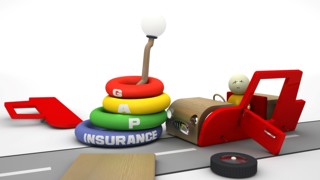For dealerships offering insurance is an easy upsell to customers that are buying a car, but research shows that once the policy expires over 70% of consumers look elsewhere for a renewal.
This is because motor insurance is one of the most competitive, fast-moving and price-sensitive markets in the UK with drivers now actively encouraged by financial specialists, consumer advice services, the government, the insurance industry and the media to ditch brand loyalty in favour of seeking the best deal for their renewals.
But it’s not just about price.
There are other factors such as cost of excess, amount of cover, type of cover, add-ons, ease of purchase, brand awareness, free gifts, customer service and channel choice that influence how drivers buy their car insurance and from whom, whether through a dealership, an insurer or a price comparison site.
To this end QuickPages conducted a major piece of research in order to better understand the purchase decision making journey of car insurance. Some of the findings were startling and challenge long-held perceptions about the way drivers decide how to buy.
A key finding was the fact that the Internet does not have the stranglehold that many assume. In the past three years 18 million licence holders purchased their insurance over the phone, accounting for almost 40% of sales. And yet only 20% of dealerships and 36% of insurers provide customers with a contact sales number on their home page or within their advertising.
This means that almost two thirds of providers could be missing out on approximately £13.6bn of sales each year.
The telephone is not just the domain of older consumers, as might be assumed.
The study revealed that 18 to 24-year -olds (41%) and 25 to 34-year-olds (43 per cent) were heavy phone purchasers.
Drivers within the 35 to 44 age bracket were the least inclined to use the telephone, instead preferring to go online.
Only 19% of customers always arrange and pay for motor insurance over the Internet, with a quarter of drivers agreeing that there are too many questions to answer/forms to fill out online, and 24% stating that they would not purchase insurance online because the website is too slow.
Moreover, with the continued spate of high profile data leaks, people are also put off the Internet as a result of security issues with a third of customers citing this as a reason not to buy online.
A possible reason for the attractiveness of the telephone as a purchasing channel is consumer perception that they can get the best deal by speaking to someone.
The majority of drivers (68%) believe that they can get the lowest price over the phone. In fact only 17% think that the internet will generate a cheaper deal.
This is because customers today have a much greater understanding about how quotes are generated and consequently know that human representatives can override the algorithm.
This knowledge means that consumers are happier to haggle than ever before and negotiation has resultantly become a legitimate part of the purchase decision journey.
Our study showed that 89% of people think that asking for a better price is definitely worth a shot. And, in fact, 77% will cite a price and ask for an improvement from either their existing provider or a competitor.
Males over the age of 55 were the most likely to seek a deal, whilst girls aged between 18 and 24 were the least likely.
It stands to reason therefore, that if insurers and dealerships made it easier for customers to contact them by telephone for price checks they would keep and acquire more customers.
The telephone is not only beneficial for insurance sales but as a customer relationship management tool.
This is particularly important as in 2018 a new data protection regulation (GDPR), comes into force and it states that organisations must have explicit consent from individuals to market to them.
Telephone contact is proven to build better relationships with consumers meaning that encouraging a telephone relationship will make it easier for organisations to generate opted-in customers.
What this research shows is that it is important for dealerships and insurers to regularly review their marketing activity and channel choice to ensure the most effective mix to win business, engender loyalty and drive incremental revenue.
Author: Sharon Mawson, director at QuickPages




















Anne - 25/08/2016 11:16
It would be good to find out more about the research, such as how many people were surveyed.